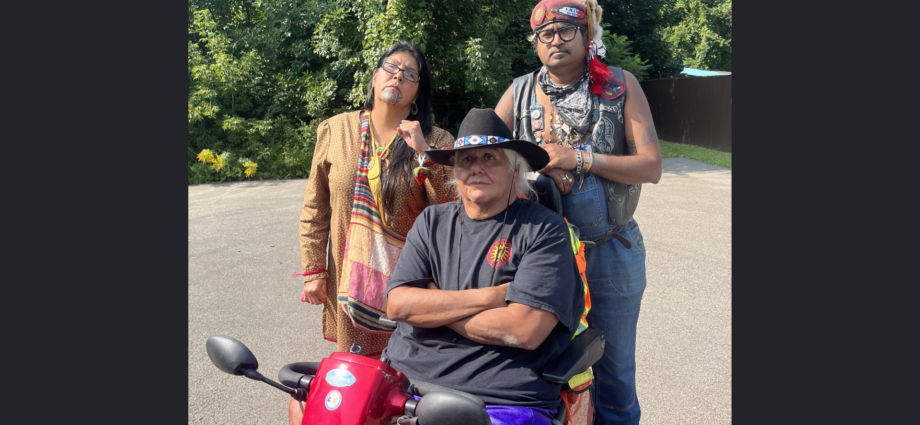
By Marcus Bankuti, Local Journalism Initiative Reporter, The Eastern Door
September 8, 2023
Jo Seenie, Wolf Clan from Roseau River Anishinabe First Nation, about an hour south of Winnipeg, has been a volunteer ground searcher for nearly 20 years, searching for the remains of Indigenous women and other Onkwehón:we.
“It’s a different realm when you’re searching because you’re walking with all these spirits that are still wanting to have closure for their families,” she said.
Seenie, whose own father was murdered and whose uncle is missing, has long been involved in the efforts to pressure the government to acquiesce to demands to search the Prairie Green landfill, just north of Winnipeg. This is where the remains of Indigenous women Morgan Harris and Marcedes Myran, both members of the Long Plain First Nation, are believed to have been dumped.
The partial remains of Rebecca Contois and an unidentified person known as Buffalo Woman – rather than Jane Doe – were found at the nearby Brady Road landfill in Winnipeg last year.
All are believed to have been killed by the same man. Jeremy Skibicki has been charged in their murders.
However, the Manitoba government, led by premier Heather Stefanson, has refused to search the Prairie Green site, citing cost and safety. The cost was estimated by a feasibility study to be $184 million.
Seenie, who visited Kahnawake, Kanesatake, and Akwesasne last week, believes Onkwehón:we everywhere need to rise up and demand justice for the murdered women and their families. “My message wasn’t planned, but my message is we need to put pressure all across the lands to put pressure on them saying to them search that landfill. That’s the focus. We want to get in there and search that landfill,” she said.
“You guys are known for being a very strong nation. Putting pressure on Canada. Let’s get it done. Let’s get in there. Let’s search it,” she said.
“We’re not Canadians, and I don’t believe in their justice because that’s not for us. The only justice I understand is getting them home and letting them have a proper burial.”
She is also urging Kanien’kehá:ka to recognize the need for funding and material supplies for the two camps – Camp Morgan and Camp Marcedes – where people are stationed to demand justice; Camp Morgan has been active for more than 250 days, she noted. Seenie and her partner helped arrange a wigwam for Camp Morgan, she said.
However, resources are needed for tents, wood, food, and other necessities, especially with another winter on the horizon.
While in the area, she connected with many Kanien’kehá:ka, including Mitch Deer, who brought Seenie to the Longhouse in Akwesasne.
“We support them 100,000 percent what they’re doing,” said Deer, a Warrior in 1990. “It moves me that she’s here and that I’ve met somebody from that place. I’ve heard about it, but I’m way over here. It’s distant. But now she’s here. She’s right in my face telling me all these things, really, to tears. To me it’s emotional. It’s about our women. They’ve been killing our women for 500 years, since they got off the boat. It hasn’t ended.
“We’re still going through this genocide.”
Deer was pleased Seenie had the chance to present in Akwesasne, where he said People of the Longhouse committed to sending supplies.
“I’m so happy we can work together and have her come to our neck of the woods to help her and her people there. They needed that help,” he said.
Seenie believes Onkwehón:we searchers need to get access to the landfill and conduct their own search, since Canada has failed to act.
“These women, these are moms, these are sisters,” she said. “They’re literally in trash. Like how disgusting is that? How sickening is that to know that our sisters are in there?”
gmbankuti@gmail.com
Subscribe to our newsletter.


